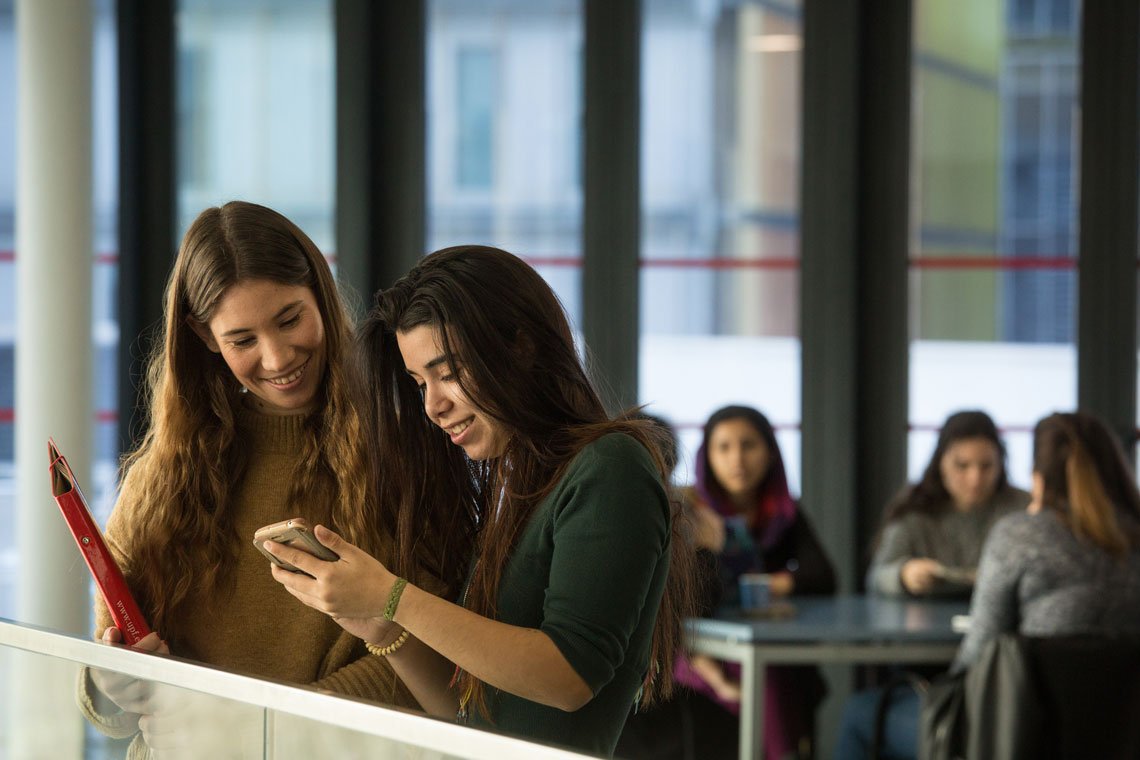Does the use of social media affect adolescents’ welfare or is it the other way around?
The UPF researcher Isabel Rodríguez de Dios is to study the positive and negative effects of social media on adolescents through the YouthSM project, with the support of the “la Caixa” Foundation.

Adolescents are the most active users of social media. According to a study by UNICEF and the University of Santiago de Compostela in 2021, conducted on students from the 1st to the 4th years of ESO, 94.8% of teenagers have a mobile phone with Internet connection, a device to which they gain access on average at the age of 10.96 years. 90.9% of these young people use their mobile phone to access social networks.
“My goal with this project is to investigate the existing relationship between social media and well-being or the negative effects they can have on young people”, explains Isabel Rodríguez de Dios, a researcher with the Communication, Advertising and Society Research Group (CAS) at UPF.
“My goal with this project is to investigate the existing relationship between social media and welfare or the negative effects they can have on young people”
The project in question is “YouthSM - Does social media use impact adolescents well-being state or the opposite? A longitudinal study on social media, loneliness, and personality traits”, which enjoys the support of the “la Caixa” Foundation through the research call on technology and society (FS21-1B). This call is devised to help projects that can produce short-term results (8 months).
“The relationship between the media and welfare has been extensively researched”, she continues, "but most of the evidence comes from cross-sectional studies and it is unclear whether adolescents’ welfare predates or follows the use of social media”.
In this scenario, the researcher aims to use a longitudinal study, which will allow seeing how both the positive aspects (online support) and the negative (harassment) behave over time. And, for example, in people who have negative consequences, to know what can be done to alleviate these effects or provide support for them. Hence, it also aims to analyse whether adolescents’ personality plays a role.
Isabel Rodríguez de Dios has been conducting researching into the role of new technologies in adolescents since her doctoral dissertation. At that time, she investigated how parents’ attitudes to the use of new technologies influenced in three aspects:
- Teenagers’ digital skills
- The opportunities they were finding online (if they used the internet for educational or entertainment purposes)
- The risks they could encounter in these environments.
Her research highlighted that restrictive parental mediation was negative for adolescents because, while avoiding risks, they were neither learning to use technology nor acquiring digital skills for learning, communication, or entertainment.
For example, during the pandemic, it was very clear that social media helped young people keep in touch and do activities that helped them cope with the feelings of loneliness that afflicted them. The pandemic revealed that new technologies were already being used very extensively by various groups, and it wasn’t that they had just started using them in 2020.
“Young people use social media more than anyone to stay in touch, to be aware of what’s going on, to get information and to learn. That’s why it’s not a good idea to take away their access to the networks because they will be necessary for their personal and professional future”.
“Young people use social media more than anyone to stay in touch, to be aware of what’s going on, to get information and to learn”, she explains. “That’s why it’s not a good idea to take away their access to the networks because they will be necessary for their personal and professional future”.
The YouthSM project begins this February and will involve Emma Rodero, full professor of the UPF Department of Communication. First a survey will be carried out on 800 adolescents living in Spain aged between 14 and 18. Four months later, the second one will be conducted and they hope to publish the results at the end of August.
